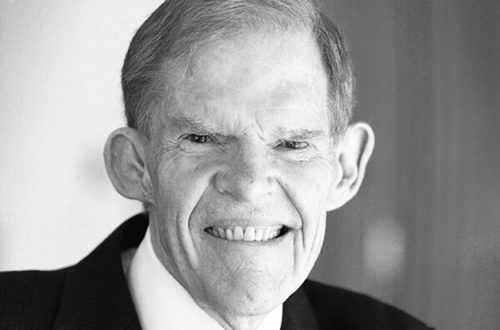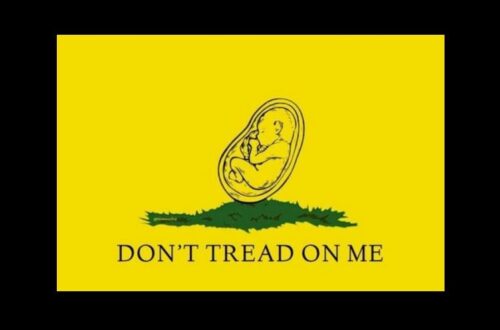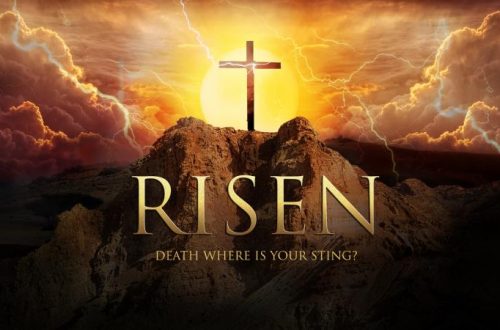Joseph, a dream come true
Title: Joseph, a dream come true
Aim: To note that God’s wisdom can enable us to help others.
Scripture: Genesis 41:25–40
Joseph’s interpretation of Pharaoh’s dreams, Genesis 41:25–32
Most of the narrative in the last 14 chapters of Genesis concerns the life of Joseph. The faith this favored son of Jacob showed amid distressing circumstances has encouraged believers down through the centuries.
Because of sibling rivalry and resentment, Joseph’s brothers sold him into slavery in Egypt. Then, once Joseph became the slave of Potiphar, the quality of his character began to show itself.
Joseph did not wallow in self-pity, but energetically carried out the tasks set before him (Gen. 39:1). Verse 2 stresses that the “Lord was with Joseph.”
Although the young man was separated from everyone and everything familiar to him, God helped Joseph to be successful in all he did. This also enabled him to respond positively to the downward turn of events in his life.
As an experienced leader of men, it did not take long for Potiphar to notice Joseph’s exceptional abilities. The official promoted Joseph from common house servant to personal attendant and then to steward over the entire household.
In each position, God blessed the young man’s work. Joseph soon had Potiphar’s complete confidence. Without supervision, Joseph ran everything in the house (vv. 3-6).
Joseph’s smooth sailing (so to speak) eventually became turbulent when Potiphar’s wife made bold sexual advances toward the handsome steward. Despite the repeated attempts of Potiphar’s wife, Joseph refused to compromise morally.
Joseph’s integrity so vexed Potiphar’s wife that she falsely accused Joseph of trying to rape her. Potiphar’s response was to commit Joseph to the prison reserved for political detainees—possibly the most comfortable facility available (vv. 7-20).
Nonetheless, Joseph’s experience was by no means easy. The injustice of his treatment must have wounded him as much as it would anyone. Yet, he remained faithful to God because He remained faithful to Joseph. In particular, the Lord blessed Joseph, which enabled him to gain the favor of the warden and rise to full responsibility over the prison (vv. 21-23).
While incarcerated, Joseph used his God-given aptitudes and abilities to interpret the dreams of two fellow prisoners, Pharaoh’s cupbearer (or food taster) and baker. The baker’s dream meant that he would die, while the cupbearer’s dream meant that he would be reinstated to his post.
Joseph asked the cupbearer to intercede on his behalf with Pharaoh. Yet, when the cupbearer was released from confinement, he entirely forgot about Joseph (40:1-23).
Two more years passed before Pharaoh experienced his own dreams. In the first one, he found himself standing on the banks of the Nile River, the source of Egypt’s prosperity and power.
Pharaoh saw seven ugly, gaunt cows devour seven fat, healthy-looking cows (41:1-4). In Pharaoh’s second dream, he saw seven heads of shriveled and withered grain swallow up seven heads of plump, well-formed grain (vv. 5-7).
The next morning, the Egyptian ruler summoned all his priests, who claimed to be experienced with magic, divination, and soothsaying. Yet, none of them could interpret his dreams (v. 8).
The incident triggered the memory of Pharaoh’s cupbearer, who recalled his own prior experience with Joseph (vv. 9-13). This prompted the ruler to order Joseph’s immediate release from prison.
After Joseph shaved and changed clothes, he found himself standing before the most powerful person in the known world. Pharaoh’s request was straightforward. He needed Joseph to interpret his troubling dreams.
The young man stated that while he didn’t have any innate ability to do this, God would supply the interpretation the ruler desperately desired (vv. 14-16). Having this assurance, Pharaoh recounted his dreams (vv. 17-24).
We can only imagine how clearheaded the Egyptian ruler became as he focused his full attention on the lowly, foreign prisoner appearing before him. Joseph explained that both dreams of Pharaoh had the same meaning.
The God whom Joseph worshiped and served—despite about 13 years of hardship and isolation (compare 37:2; 41:6)—was using him to disclose to Pharaoh what the Lord would soon do (41:25). Joseph pointed out that the seven fat cows and the seven plumb heads of grain both represented seven years of prosperity (v. 26). In contrast, the seven gaunt, ugly cows and the seven withered heads of grain represented seven years of famine (v. 27).
By means of the explanation Joseph offered, he clarified the significance of the symbolism in Pharaoh’s two dreams. God gave the Hebrew the correct interpretation so that he in turn could make known to the powerful ruler what the Lord was about to do (v. 28).
In this regard, both dreams had identical messages. There would be seven years of abundance in the kingdom (v. 29). Then, following the time of plenty, there would be seven years of severe famine. In fact, it would be so widespread and horrific that all the prosperity would be forgotten and wiped out due to the devastating effects of the famine (v. 30).
Joseph’s announcement of a kingdom-wide famine posed a real, existential threat to Egypt’s dominance on the international scene. A brief episode of drought might be endured without much concern.
Yet, the disaster Joseph foretold would be so intense and prolonged that it could decimate the powerful nation situated along the Nile River (v. 31). The longtime Hebrew prisoner noted that Pharaoh’s experience of two versions of the same dream was God’s way of signaling to the ruler that the matter was divinely decreed and would soon occur (v. 32).
Joseph’s advice to Pharaoh, Genesis 41:33–45
Because God was sure to act as He had declared through Joseph, the Hebrew urged Pharaoh to take immediate action. In particular, the Egyptian ruler was advised to find someone who was wise and discerning.
Such an individual would be aware and informed as well as mature and experienced. This person would also exhibit keen insight and good judgment. Joseph recommended that this even-tempered and morally-grounded overseer be placed in charge of a nationwide program (Gen. 41:33).
The Egyptians would have been used to an official like Joseph collecting grain for Pharaoh. Also, Scripture says that Joseph used the circumstances of the famine to increase Pharaoh’s influence in Egypt (47:23-26).
Joseph advised that commissioners be appointed to have responsibility for gathering all the excess food and grain during the seven years of abundance to come. In turn, the officials—operating under the authority of Pharaoh’s grand vizier—were to stockpile these supplies in the royal storehouses located in various cities throughout the realm (Gen. 41:35).
By adopting this strategy, Pharaoh would ensure that there would be enough food to eat when the seven years of famine came. To do otherwise would bring about widespread starvation, resulting in the eventual ruin of the nation. Joseph’s proposed course of action was the only way for Egypt to survive the impending calamity (v. 36).
The advice Joseph gave made sense to Pharaoh and all his officials (v. 37). As the royal court deliberated who should be appointed to oversee the entire operation, Pharaoh openly wondered whether they could find a more suitable person than Joseph, someone in whom resided “God’s spirit” (alternately, the “spirit of the gods”; v. 38). The ruler’s rhetorical question expected a negative answer.
Throughout the ancient Near East, kingship was believed to have been established by the pagan deities the heathen venerated. The monarch was viewed as representing and often embodying the authority of the local deity.
Therefore, the inhabitants of a region believed a king ruled by divine right. Monarchs were also believed to have direct access to celestial wisdom. Pharaoh’s remark in verse 38 implied that Joseph displayed unparalleled foresight and prudence, which even exceeded that of the king.
Moreover, throughout the Fertile Crescent, there were three distinct classes of wise men: enchanters, astrologers, and diviners. Enchanters were those who practiced conjuring and divination, the art of foretelling the future by signs.
Astrologers were probably priests or magi who maintained the traditions of the indigenous religion. Diviners, like enchanters, would interpret signs. In Joseph’s day, these signs took many forms, including dreams or the casting of lots.
Some diviners examined the patterns found in animal organs or the remains in a cup after the liquid was poured out. Joseph distinguished himself from all these pseudo-sages by receiving direct revelation from God about the future.
As noted earlier, Joseph had spent around 13 years in prison, which proved to be the watershed of his life. During that long, foreboding period, God humbled and matured His bondservant. The Lord also enabled Joseph to acquire and refine his organizational and leadership skills.
The former Hebrew prisoner came to see that God had a grander purpose for his hardships. The Lord permitted Joseph to be sold into slavery in Egypt to bring about the rescuing of many lives.
The above included those of Joseph’s immediate family, through whom the blessings of the covenant would be transmitted to the world (45:5). So, despite the harm Joseph’s siblings intended to cause, God’s nobler intent was to bring about widespread good (50:20).
Joseph’s first meeting with Pharaoh was the starting point for all these things to happen. When the Hebrew was finally released from prison and taken to the Egyptian ruler, he stopped long enough to change clothes and shave (41:14).
While Joseph might have done this just to look agreeable to Pharaoh, it is likely that Joseph was following the social customs of the time. In ancient tomb paintings, Egyptians are almost always depicted as clean shaven, while Canaanites and other non-Egyptian peoples are shown with full beards.
In fact, in most of the ancient Near East, men did not shave, unless it was a sign of mourning (Jer. 41:5). Also, an enemy could humiliate captured prisoners by shaving off their beards, as the Ammonites did centuries later when they captured some of David’s men (2 Sam. 10:3-5).
Pharaoh accepted without question Joseph’s earlier statement that God had revealed to him the meaning of the king’s dreams (Gen. 41:16). Pharaoh was convinced that the Hebrew—though a Semite foreigner—was the wisest and most discerning person throughout the entire realm (v. 39).
So, it made sense to appoint the 30-year-old to be the national overseer. For Joseph to direct the project, he would manage the household of Pharaoh and have charge over all his officials and inhabitants.
These individuals were to submit to the Hebrew’s commands. Only the Egyptian ruler would rank higher than Joseph and retain supreme authority over the nation-state (v. 40).
It was unusual for Pharaoh to appoint a Semite foreigner from Canaan for such a vital task as preparing for a famine and to give him so much power in the kingdom. It was especially unusual for the Egyptian ruler to place a relatively young, unknown, and unproven former Hebrew prisoner in an office of such great authority.
In the final analysis, only God could have made such an act possible. Joseph had risen from slavery and imprisonment to be the second most powerful person in Egypt. Yet, God’s plans for Joseph were just beginning!
For thought and application
A consistent theme in Proverbs is the comparison between the way of wisdom and the path of foolishness. The way of wisdom leads to a clear conscience, meaningful relationships, and a full life. The path of foolishness leads to frustration, heartache, and eventual ruin (both temporal and eternal).
As the collection of wisdom sayings repeatedly remind us, being prudent is always the superior choice. The benefits of wisdom far outweigh the consequences of foolishness. People who follow the way of wisdom tend to succeed. Those who follow the way of foolishness eventually meet their demise.
The account about Joseph shows us how God gives us wisdom and how we can use that wisdom to help others. Even though he was only 30 when he was brought before the royal presence of Pharaoh, Joseph was already wise to God’s ways, since the Hebrew prisoner had learned to trust God in hard places.
We are prudent when we trust God through crises (Prov 3:5–6). We can then use that godly sagacity to help others—for instance, as we share with a struggling friend what God has done for us (2 Cor 1:3–4).
Opportunities to help others come when we least expect them. Consider Joseph, who was summoned quickly from a prison to the court of Pharaoh. His example reminds us to walk close to the Lord every day, so we will be ready when He calls us to serve. We are to be prepared to alter direction if God suddenly changes our circumstances.
Moreover, we never know how far-reaching the effects of sharing our Christ-centered views will be. Joseph interpreted Pharaoh’s dream correctly and saved Egypt. Later, he rescued his own family from starvation. Similarly, people will seek our help in times of need, that is, if they have seen the Spirit of God consistently present in our lives.
Pharaoh recognized that God spoke through Joseph. As God works through us, people will notice our humility, acts of kindness, and wise advice. Yet, He receives all the glory for what He does through us.
Joseph gave God the credit for the correct interpretation of Pharaoh’s dream. Likewise, when God gives us wisdom to help others, He is honored.



